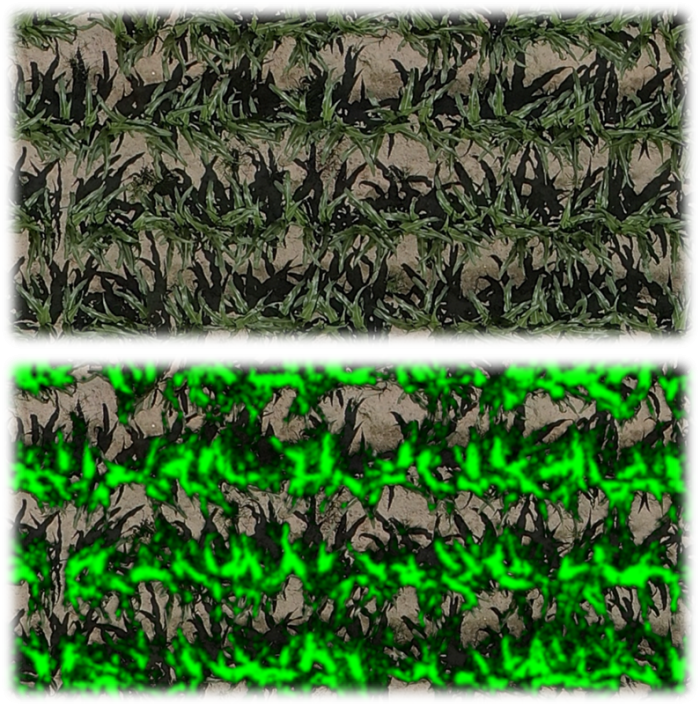Thanks to VITO, VIB’s annual maize field trials received several visits of an imaging drone, revealing the phenotypes of novel maize lines in Belgian field conditions throughout the growing season.

This year, four maize field trials were conducted as part of a longstanding collaboration between VIB (Flanders Institute for Biotechnology) and the Flanders Research Institute for Agriculture, Fisheries and Food (ILVO). Researchers from the VIB-UGent Center for Plant Systems Biology aim to evaluate the performance of lines with positive traits in the greenhouse under real-life field conditions.
One trial featured plants with a reduced lignin content, improving their digestibility both for use as animal feed or the production of fermentable sugars. The goal for this trial was to test whether the plants can still thrive in field conditions, despite their reduced lignin content. The three other field trials tested maize lines promising improved growth under adverse climate conditions. One trial contained lines with improved resistance to DNA damage, caused by various environmental stresses such as heat, while the remaining two other trials included maize lines displaying improved growth under dry conditions in greenhouse trials.
Thanks to the Flemish Institute for Technological Research (VITO), which organized several drone flights throughout the growing season, VIB’s field trials starred in their own high-detail photoshoots. The resulting high-resolution RGB or multispectral images were uploaded to VITO’s MAPEO platform. The MAPEO platform allows easy access to the drone imaging data, facilitating the analysis of the maize phenotypes throughout plant growth. By doing so, the researchers at VIB now have insight into plant health, using various multispectral indices, as well as coverage and growth over time. In addition to the usual manual phenotyping performed at harvest, the drone phenotyping is a useful tool for dynamically analyzing crop performance in the field throughout the growing season.
- Log in to post comments